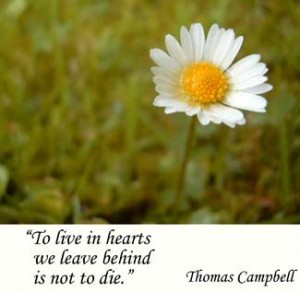Grief and Loss
When Coping With Grief and Loss,
Consider Grief Counseling, Support, and Books
Grief is a human way to deal with the feelings of love that we believe have ended. Another way of defining grief is the normal and natural reaction to significant emotional loss of any kind.
There is no one way to grieve. As we all are individual, we all grieve different and often turn towards grief support groups. Also, our society at large does not have a general way to honor grief. Since we are a society that is always struggling with time management and high demands, taking time to grieve or knowing how to grieve is not part of our system. However, religion often fills this gap in our society.
Each religion has rituals to follow for grief and how to grieve a loss. These rituals can provide us with a way to get through the initial shock of grief, but as many people know who have been through a loss, that when the rituals of religion end there is still grief and the adjustment of loss with which to deal.
There are many different opinions about grief such as “time heals all wounds“, and many believe you can actually break this emotional experience into five stages of grief. It is important to keep in mind that depending on the individual and their personal situation, many of these opinions or “myths” about grief, or even recommendations from some of the top grief books, can actually slow down or prevent some people from moving beyond their pain.
Where Should You Seek Grief Support?
When it comes to the most of the important things in our lives, seeking group or professional help can usually provide some of the best possible information, support, and direction. The two most common types of professional help families seek to help cope with grief and loss are Grief Counseling and Life Coaching.
How Can Grief Counseling Help?
Funeral Directors wear numerous hats, and are expected to accomplish many important things in a short period of time, while facing many funeral planning challenges. Families are grieving and have important decisions to make under much duress. They may often expect a degree of emotional support that some Funeral Directors may not have the time or skills to be able to provide.
Through grief counseling and working with a Life Coach, these added levels of emotional support and expertise can very often help families bridge and offer the help that most families are searching for.
Five Powerful Ways a Life Coach Can Help Families:
1. Offer the support needed to get through this sorrowful time.
2. Help families develop a short term, “what’s next”, plan for their lives.
3. Help families establish new or revised long term life goals pertaining to work, school, relationships, hobbies and general wellness.
4. Provide families with hope, motivation and direction to take control of their lives in the new role that they inherited as a result of their loss.
5. Some families can turn to and listen, since many times what is most needed most in a time of sorrow and confusion is just simply listening.
Grief Counseling is one of the fastest growing trends in self improvement, wellness and life in general. By offering this level of grief support and Life Coaching services; you are keeping your business relevant, and fulfilling your potential to better serve your families.
Coaching is not therapy or counseling. A therapist would be recommended if your client is particularly overwhelmed and unable to cope with their grief. Another popular and healing option is to consider using grief message boards, which is where people who are have experienced similar losses gather together online to talk in real-time via the Internet.
What is a Grief Recovery Outreach Program?
If you have experienced one or more losses, and you wish to move beyond the pain, this type of program offers step by step actions that will help you overcome your grief. It is the only program of its kind and has helped thousands of people worldwide recover from their heartbreak.
In summary, there are many ways to work through things like grief, loss, or even a crisis. There is help available to those who are grieving a loss, and we strongly suggest you consider seeking professional help in addition to some of the other excellent options mentioned above.
Christopher P. Hill, Founder
FuneralResources.com










